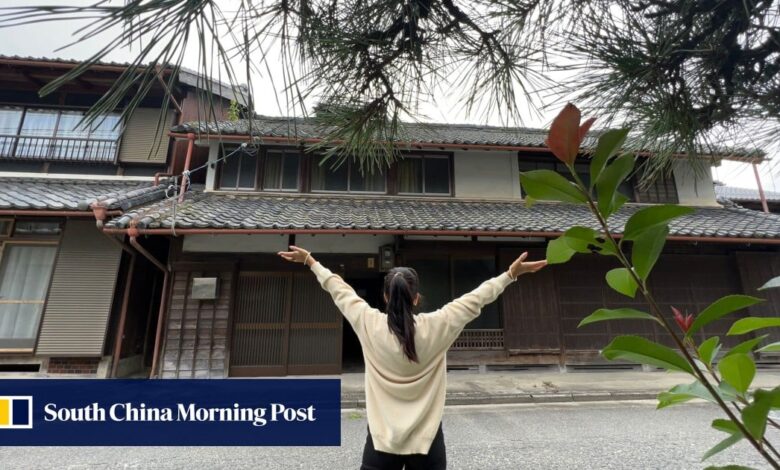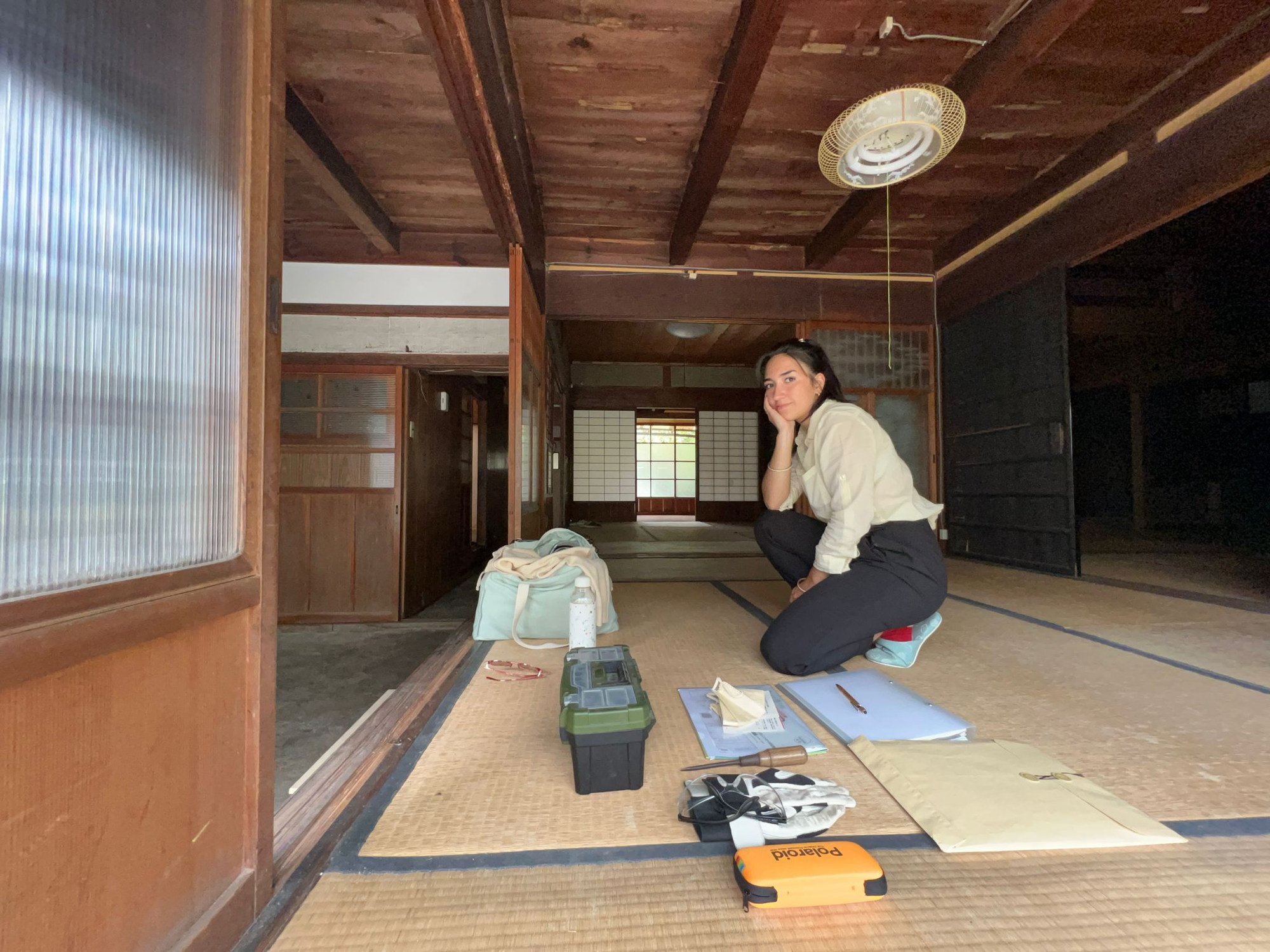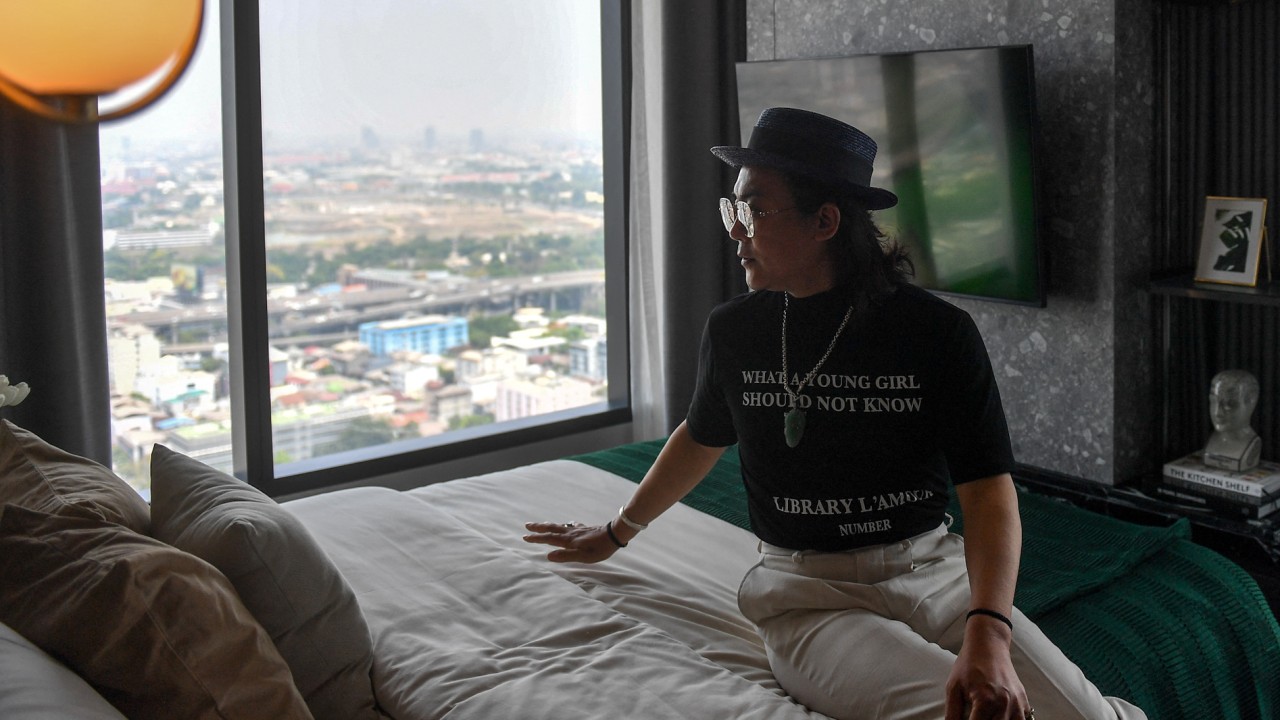Japan’s old abandoned houses, or akiya, draw foreign buyers looking for a bargain holiday home to let

[ad_1]
Aguirre’s bargain property is one of millions of abandoned Japanese homes known as akiya. Lying vacant in mainly rural areas, the houses can often be snapped up for a fraction of the price of a new or lived-in property in a housing market that is already cheap compared to many others in the region.

The prospect of moving into an akiya then letting out part of it as a holiday home has proved particularly appealing to Hongkongers.
“One of the most common reasons Hong Kong buyers purchase abandoned homes is to operate them as vacation properties for Airbnbs,” said Kazuaki Nebu, country head of property portal IQI Japan. “They can reside in a beautiful part of Japan in a traditional house and earn income from visitors. It’s the fulfilment of a dream for many.”
Aguirre has her sights set on a similar plan.
With her house just an hour and a half from Kyoto and two hours from an international airport, she hopes that when the refurbishment is completed she will be able to offer two or three bedrooms for paying guests.
With one of the world’s fastest-ageing populations and a growing number of younger Japanese opting to move to the big cities such as Tokyo and Osaka, the number of akiya – already huge – is only likely to increase.
Some 8 million akiya lay unoccupied across the country in 2018, according to the most recent government estimate. Property technology firm Juwai IQI said that by 2033, one in three homes in Japan is likely to be left empty.
Average prices of homes in cities such as Tokyo, Yokohama, Osaka and Fukuoka range from US$183,360 to US$626,502, whereas in Sydney, Melbourne, Brisbane, Hong Kong and Singapore, they go for between US$308, 295 and US$1.2 million, according to data from the Urban Land Institute (ULI), a think tank.
Average rents are also generally lower in Japan, ranging from US$343 per month to US$602. In Singapore, Hong Kong, Sydney and Melbourne, tenants can expect to pay between US$1,356 and US$2,596.
Abandoned properties are even more affordable, with prices listed in Cheap Houses Japan, a website that curates homes that have been left empty, well below the average. For example, an akiya in Hokkaido, the northernmost region of Japan’s main island known for its hot springs and ski areas, is listed for just US$22,000. Another vacant house, located in Kyoto prefecture, can be had for US$63,000.
“In some cases, you can even get the property for free,” said Nebu. “You just have to pay for the repairs and renovations. After that, you can get a big return.”
Others buy an akiya purely to generate a regular, attractive rental income.
One Hongkonger, he said, spent a total of US$100,000 on the purchase and refurbishment of an old house in a Tokyo suburb and is now operating the property as a rental and earning a profit of US$2,900 a month.
Another bought an empty building containing five apartments in Asakusa for US$858,000 and spent another US$140,000 on repairs, said Nebu. With the whole building now leased, the buyer is raking in US$13,000 per month.
Not all abandoned homes are suitable for investment, said Kashif Ansari, Juwai IQI’s co-founder and group CEO.
“Most akiya are destined only to be torn down,” he said.
He advised potential buyers to do their research before committing to any property as “some [rural] properties stipulate that you must farm the land around them.”
“Buy an akiya because you love it, not because you expect to make a fortune,” Ansari added.
[ad_2]
Source link






